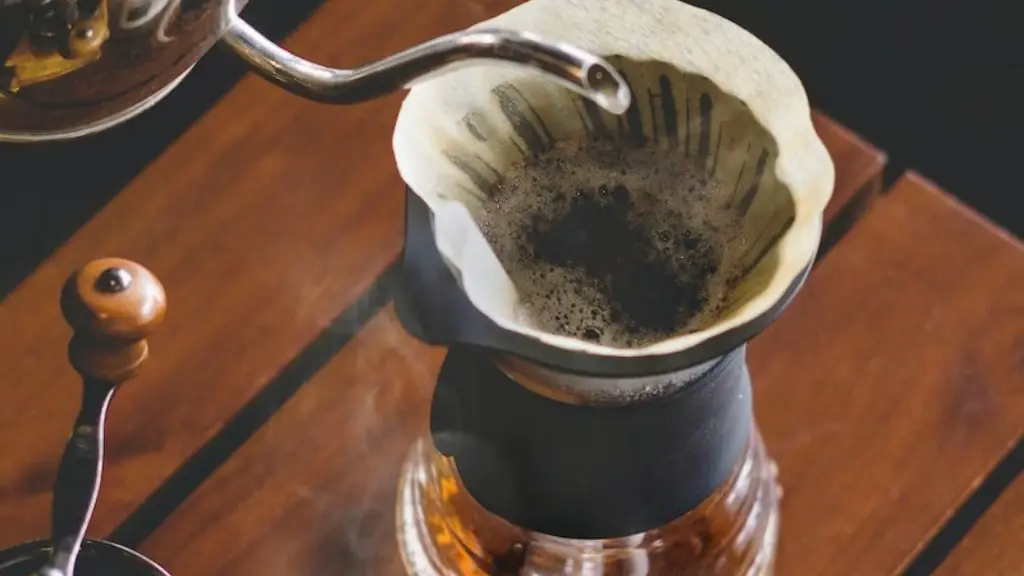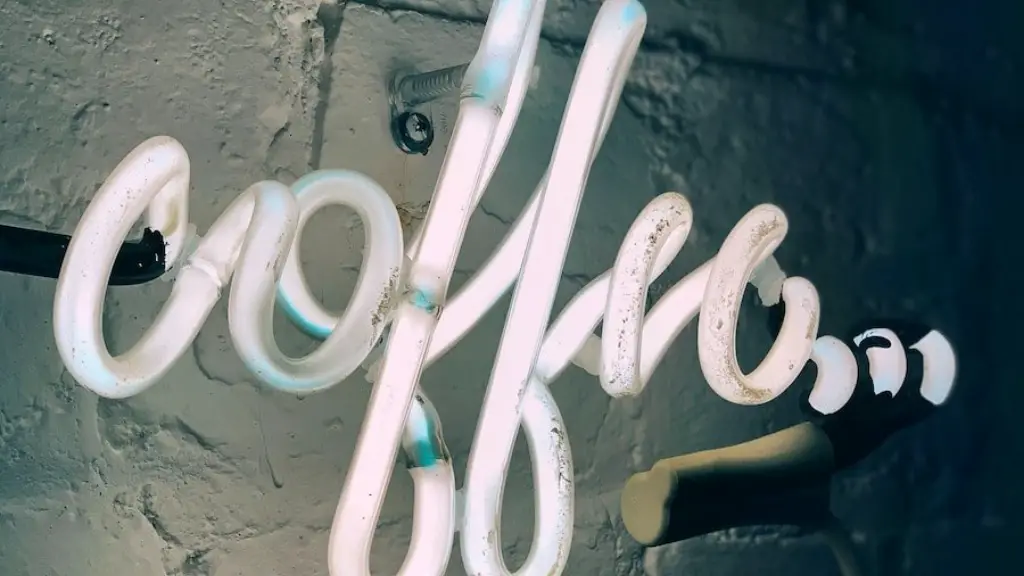How Much Water Should I Drink After Coffee
Coffee is a popular breakfast beverage around the world. It is also an important part of many people’s daily routine, as it is known to help with improved focus, a boost of energy, and is sometimes even used as a way to relax and wind down after a long day. However, beyond its energizing properties, it is important to remember that coffee is still a diuretic, and it is important to replenish the water lost when drinking coffee and remain properly hydrated.
Water may help to balance out some of the diuretic effects of caffeine. There is much debate regarding how much water needs to be consumed after drinking coffee, though. Some people may be able to tolerate two to four cups of coffee a day and still maintain optimal hydration levels, while others may need more water to keep from becoming dehydrated.
When considering how much coffee someone should drink, it is important to consider that individual’s activity level and overall health. Individuals who frequently engage in physical activity or work in hot environments may require even more water to stay hydrated. Moreover, it is important to consider the amount of caffeine in the coffee, as well as the type of coffee being consumed. For instance, if someone drinks an espresso, they may need to drink more water compared to someone who drinks a standard cup of black coffee.
It is also important to consider the individual’s sensitivity to caffeine. Those who are more sensitive or allergic to caffeine may need to limit their daily intake. Additionally, those with underlying health conditions such as kidney disease, heart disease, or high blood pressure may need to drink more water if they choose to drink coffee. Consulting with a doctor is a good way to determine how much coffee is safe for someone to consume.
In general, most experts recommend drinking at least two to three litres of water a day, which equates to eight to ten glasses. The exact amount of water someone should drink after consuming coffee largely depends on an individual’s circumstances and preferences, though. Consulting with a doctor and keeping track of hydration levels through the use of a hydration tracker app may help to ensure someone is not becoming over or underhydrated when drinking coffee.
Coffee Comparisons
Many people are interested in understanding the difference between coffee types and the impact they have on hydration. While the amount of water needed to stay appropriately hydrated after coffee would depend on individual circumstances, there may be some differences between beverages in terms of diuretic effects.
Espresso is a concentrated form of coffee, made by pushing hot water through finely-ground coffee beans. Since it is stronger than a standard cup of coffee, those who choose to drink an espresso may require more water to stay hydrated. Additionally, cold brew coffee is brewed using cold water and is less acidic than most coffees. As a result, when considering how much to drink after consuming coffee, one should consider the strength and type of coffee in order to ensure they are staying hydrated.
Moreover, beyond its diuretic effects, coffee also provides certain health benefits. Many people enjoy its energizing properties, as well as its antioxidant content. This antioxidant content can help to protect cells from free radical damage, reduce inflammation in the body, and may help to reduce the risk of certain diseases.
In addition to providing certain health benefits, many people enjoy the taste of coffee. Luckily, there are several ways to enjoy coffee without needing to worry about becoming overly dehydrated. Those who are sensitive to the diuretic effects of coffee can opt for decaf coffee, as well as tea and other low-caffeine beverages.
Water Alternatives
In addition to drinking water to stay hydrated, those who enjoy coffee can also enjoy water alternatives that offer the same hydration benefits and may taste better. One such alternative is coconut water, which is a natural electrolyte drink derived from coconuts. Coconut water has a refreshing taste and provides electrolytes, trace minerals and vitamins which are essential for hydration.
Sports drinks and other energy drinks are also popular alternatives for those who wish to stay hydrated after consuming coffee. Most sports drinks are formulated to rehydrate athletes, and contain electrolytes, sugar and other components that are necessary for proper hydration. Some of these drinks also contain B vitamins and caffeine, which may help to boost one’s energy levels.
Fruit and vegetable juices are also good options. They are loaded with vitamins, minerals, and provide additional benefits such as disease prevention and improved digestion. In addition, vegetable and fruit juice are great sources of hydration, as they contain water and electrolytes.
Health Considerations
There are a few health considerations to keep in mind when deciding how much to drink after consuming coffee. Good hydration is essential for healthy organs and for overall bodily functions. Furthermore, dehydration can affect one’s mood, energy levels, and cognitive ability. Additionally, certain medications require that one drinks an adequate amount of water to help with the absorption, and this should be taken into consideration as well.
Finally, dehydration can also cause kidney stones and heart problems. Therefore, while the exact amount of water to drink after consuming coffee depends on one’s individual circumstances and preferences, it is important to keep a regular intake of water and beverages to stay properly hydrated.
Headaches From Caffeine
In addition to being dehydrating, coffee can also cause headaches in some people. As with hydration levels, the amount of caffeine one can tolerate also varies by individual. It is important to consider how much coffee is too much for one’s body and make adjustments accordingly. Additionally, for those who are sensitive to the effects of caffeine, avoiding coffee entirely may be the best option in order to prevent headaches.
It is also important to consider that headache symptoms may be the result of other conditions, such as dehydration, stress, hunger, or allergies. While coffee can worsen certain headache causes, it can also help to reduce the pain and discomfort associated with them. Therefore, ensuring one is staying properly hydrated is essential for avoiding caffeine-related headaches.
Benefits of Staying Hydrated
Staying hydrated is a key component to overall health and well-being. Adequate amounts of water can help to flush toxins out of the body, improve digestion, and enhance the absorption of nutrients. Even moderate dehydration can lead to headaches, fatigue, and irritability. Therefore, drinking enough water is essential for overall health.
Good hydration practices are also necessary for maintaining healthy skin. Healthy skin cells require adequate amounts of water to remain plump and moisturized. Additionally, drinking enough water is essential for aiding in the cell regeneration and detoxification process. Therefore, those who want to maintain healthy and vibrant skin should ensure they are drinking enough water each day.
Finally, adequate hydration is essential for improving cognitive performance. Drinking water can help to reduce fatigue and aid with focus and alertness. Moreover, it can help to reduce stress levels and provide clarity of thought. Therefore, staying hydrated is important for both physical and mental health.
Hydration Trackers
Thanks to advancements in technology, it is now easier than ever to monitor one’s hydration levels. There are several hydration tracking apps that can be used to gauge how much water someone needs to drink after consuming coffee. These apps provide personalized recommendations based on individual factors such as age, activity level, hydration levels, and even location. Using a hydration tracker can help one maintain optimal levels of hydration.
In addition to hydration trackers, there are also health devices such as hydration monitors that can be used to measure and monitor hydration levels. These devices use sensors to track hydration levels and alert an individual when they are becoming dehydrated. This type of device can also provide personalized hydration reminders, which can be particularly helpful for those who are less likely to remember to drink enough water.
In Summary
The exact amount of water someone needs to drink after consuming coffee depends on their individual circumstances and preferences. It is important to consider the amount of caffeine in the coffee, as well as the type of coffee being consumed. For those who are more sensitive to coffee, drinking decaf coffee, herbal teas, and other low-caffeine beverages may be a better option. Additionally, one can try water alternatives such as coconut water, sports drinks, and fruit and vegetable juices to stay hydrated.
Staying hydrated is essential for overall health and well-being, and drinking enough water is especially important when drinking coffee. It is possible to become over or underhydrated if the right amount of water is not consumed . Consulting with a doctor and keeping track of hydration levels through the use of a hydration tracker app may help to ensure someone is not at risk of becoming dehydrated.





